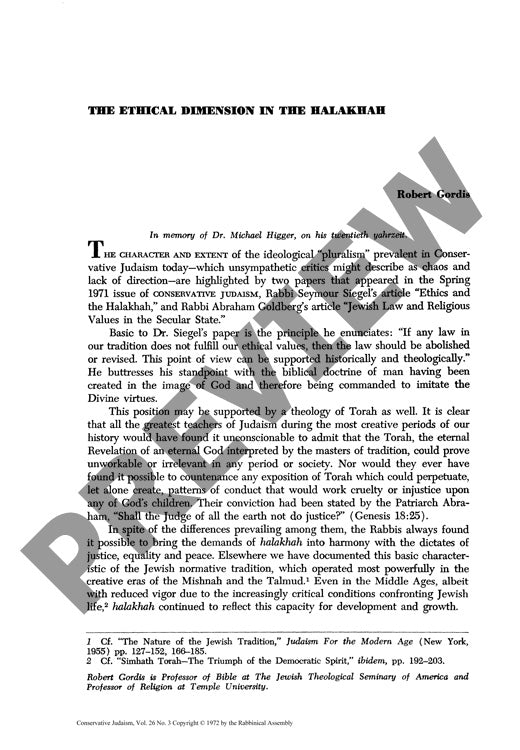The Ethical Dimension in the Halakhah
Couldn't load pickup availability
Throughout Jewish history's most creative periods, rabbinic authorities have woven ethical principles into the fabric of halakhah (Jewish law), consistently harmonizing legal demands with justice, equality, and mercy. By analyzing contemporary Conservative Jewish scholarship, particularly the contrasting approaches of Rabbis Seymour Siegel and Abraham Goldberg, this research investigates how ethical considerations have shaped Jewish legal tradition. Through comparative analysis of biblical and talmudic sources, the examination reveals rabbinic Judaism's remarkable capacity to reinterpret Torah through ethical lenses while maintaining fundamental commitments to righteousness. A detailed analysis of Deuteronomy 21:15-21 demonstrates how rabbis either modified laws (inheritance law) or rendered them inoperative (rebellious son law) when they conflicted with evolving ethical consciousness. The research challenges static interpretations that prioritize legal formalism over human welfare, arguing instead that halakhah's ethical dimension has been essential to its vitality and relevance. These findings carry significant implications for contemporary Jewish legal decision-making, particularly regarding personal status issues in modern contexts.

More Information
-
Physical Description
-
Publication Information
Published 1972
ISBN
-
Publication Credits
Robert Gordis

